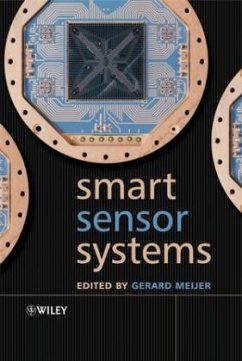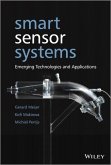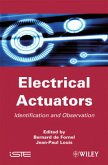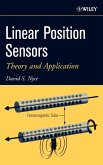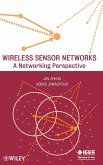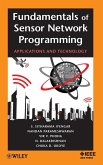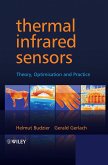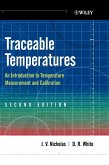Information processing systems need sensors to acquire the physical, mechanical and chemical information to be able to function. For extended use of sensors in industrial production tools and consumer components, such as smart cars and smart homes, the reliability of the sensors should be improved and the cost dramatically reduced. The improvement of reliability, together with a reduction of cost, can only be achieved with smart sensor systems.
These systems combine the functions of sensors and interfaces, including sensors, signal conditioning A-D (analog to digital) conversion, and bus interfacing. Also, applications at a higher hierarchical level are included, such as self-testing, auto-calibration, data evaluation and identification. Developments into the integration of sensors with electronic circuitry to produce smart sensors and smart sensor systems are increasing as research in this field continues to expand.
Written by an internationally-recognized team of experts, this book reviews recent developments in the field of smart sensor systems, providing complete coverage of all important system aspects. It takes a multidisciplinary approach to the understanding, design and use of smart sensor systems, their building blocks and methods of signal processing. This book also contains:
_ a review of powerful measurement techniques, and basic principles and typical problems of sensor elements, smart analog interfaces and A-D converters;
_ a discussion about how to use microcontrollers and DSPs (digital signal processors) for sensor applications;
_ detailed up-to-date reviews of the features of optical, integrated hall magnetic, capacitive, thermal sensors, and temperature sensors and physical chemosensors;
_ numerous case studies and problems set at the end of each chapter to test and develop your knowledge on the theory. Solutions for all can be found on the accompanying website.
Smart Sensor Systems will greatly benefit final year undergraduate and postgraduate students and professors in the areas of electrical, mechanical and chemical engineering, and physics. Professional engineers and researchers in the microelectronics industry, including microsystem developers, will also find this a thorough and useful volume.
These systems combine the functions of sensors and interfaces, including sensors, signal conditioning A-D (analog to digital) conversion, and bus interfacing. Also, applications at a higher hierarchical level are included, such as self-testing, auto-calibration, data evaluation and identification. Developments into the integration of sensors with electronic circuitry to produce smart sensors and smart sensor systems are increasing as research in this field continues to expand.
Written by an internationally-recognized team of experts, this book reviews recent developments in the field of smart sensor systems, providing complete coverage of all important system aspects. It takes a multidisciplinary approach to the understanding, design and use of smart sensor systems, their building blocks and methods of signal processing. This book also contains:
_ a review of powerful measurement techniques, and basic principles and typical problems of sensor elements, smart analog interfaces and A-D converters;
_ a discussion about how to use microcontrollers and DSPs (digital signal processors) for sensor applications;
_ detailed up-to-date reviews of the features of optical, integrated hall magnetic, capacitive, thermal sensors, and temperature sensors and physical chemosensors;
_ numerous case studies and problems set at the end of each chapter to test and develop your knowledge on the theory. Solutions for all can be found on the accompanying website.
Smart Sensor Systems will greatly benefit final year undergraduate and postgraduate students and professors in the areas of electrical, mechanical and chemical engineering, and physics. Professional engineers and researchers in the microelectronics industry, including microsystem developers, will also find this a thorough and useful volume.

